[Original by Ko IMANAKA, Sudan Project (May 7, 2020); Translated by E. Miyazaki /A. Taguchi]
In the previous blog, I wrote mostly about the influence of COVID-19 in Khartoum, the capital of Sudan, but in this blog, I am going to tell you about the situation in Kaduqli one of JVC’s project sites.
Influence of COVID-19
As of May 6th, there are no reported cases of COVID-19 in South Kordofan which has Kaduqli as the state capital. However, the state was left behind from growth and development by the government and had been affected by conflicts for a very long time. Because of this, the medical standards in Kaduqli are low compared to that of Khartoum’s and there is limited availability of clean water to wash hands, so there are many people who are more susceptible to COVID-19.
Kaduqli is greatly dependent on resources shipped from Khartoum. For example, even newspapers are shipped from Khartoum, so we need to wait until late afternoon to find them in the shops. Therefore, prices are 10% higher than goods sold in Khartoum despite the wages being relatively lower. Moreover, the value of the Sudanese pound has slumped due to the shortage of foreign currency, and overall, the inflation rate of Sudan has reached 71.3% in February (as reported by the Central Analytic Bureau of Sudan), so people have been facing difficult situations even before the impact of COVID-19.
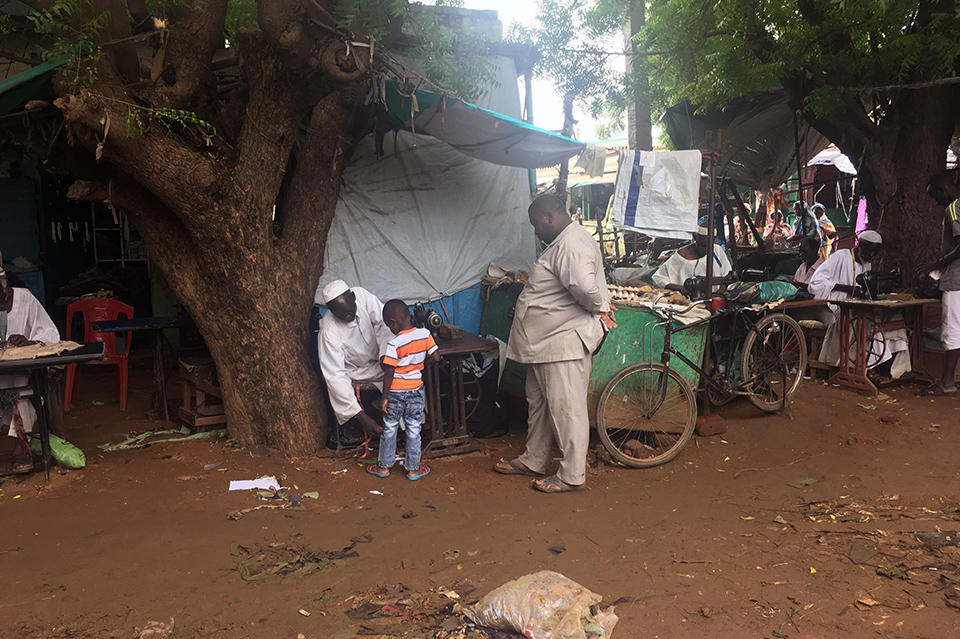
At a market in Kaduqli.
Many are struggling with the shortage of goods and price inflation due to the government’s action of limiting the number of people who can go to other states. I heard the following voices of despair:
“I have not been eating meat nor vegetables for 2 weeks now because the prices have gone so high.”
“The only kind of fruit I see in the Kaduqli suburbs are mangoes.”
“I need to go all the way to Khartoum to get medicine for my treatment.”
“The masks are too expensive and only those who have the money can afford to buy them.”
JVC’s activities
Under these circumstances, a group of JVC staff held an internal study program for other staff to acquire the right knowledge in responding to COVID-19. They shared fundamental information such as symptoms and prevention measures, as well as safety tips when visiting communities (banning gatherings of more than 6 people, maintaining 1.5 m of social distancing).
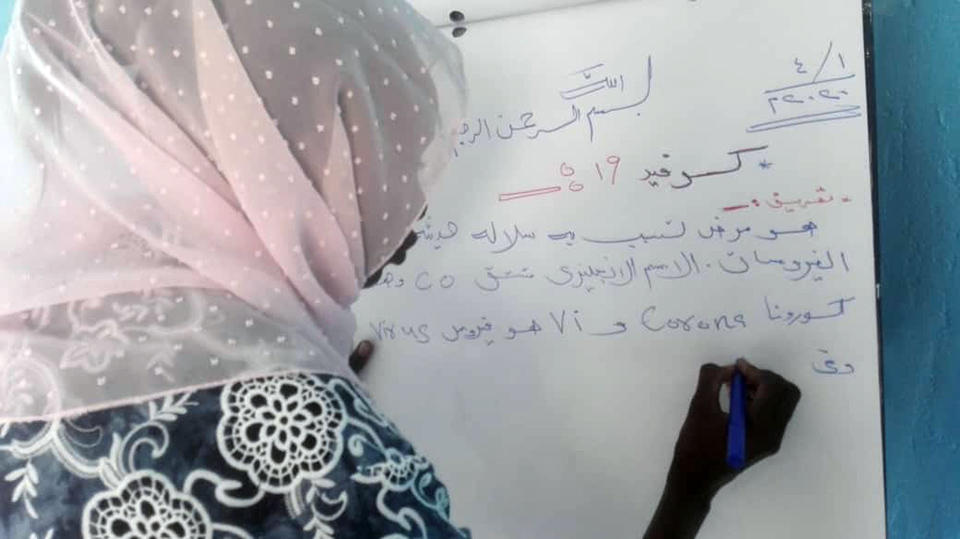
Sarah of JVC Kaduqli Office giving a lecture to other staff based on the information provided by the Health Ministry.
Water accessibility
Washing hands is essential to prevent from being infected with COVID-19, but most households in Kaduqli do not have water taps (not even in the JVC office), so residents whom JVC supports need to go and get water from a well nearby. We contacted the water management committee of each community to check the condition of wells (hand pumps), the number of broken wells, and from when they are broken, etc. We will visit communities that have serious problems and discuss with the residents how to deal with them.
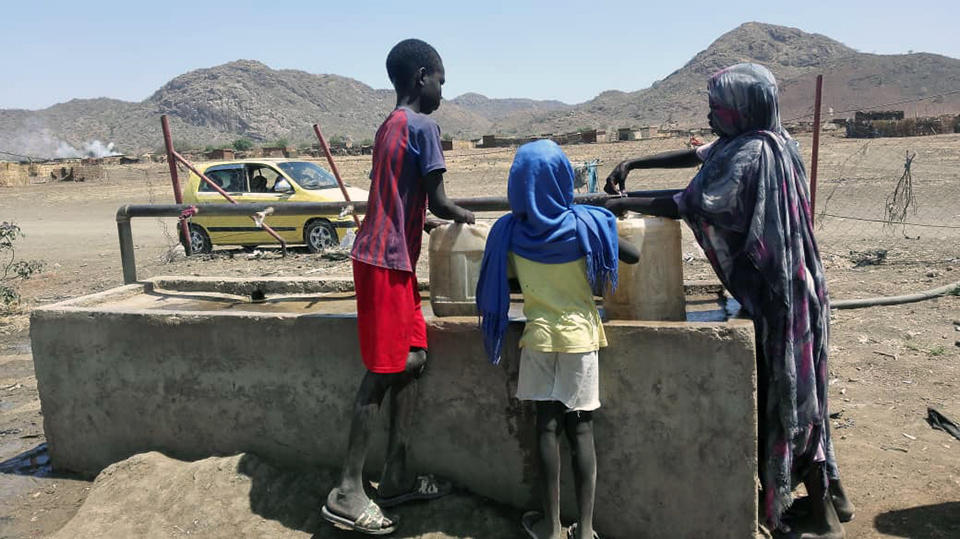
The water yard in the Tilow region of Kaduqli, which JVC supported about 5 years ago, is maintained by the water management committee composed of residents.
Alternative Learning Program
JVC is running a supplementary education class, an Alternative Learning Program, for children who lost the opportunity to receive an education due to conflicts. However, the activity is paused since mid-March because the government announced the closure of schools and universities across the country. It is difficult to provide online classes since there are no computers and access to the internet, but we are discussing with the Health Ministry and related organizations to find a way in helping children to continue studying.
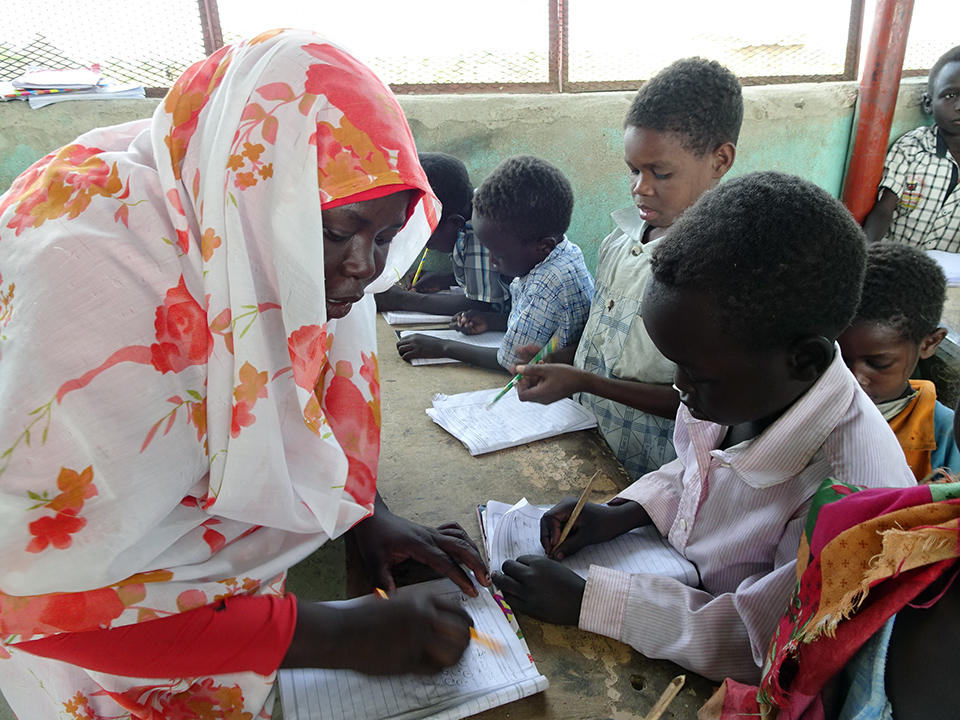
Children learning Arabic in the supplementary class (last February).
Whenever I talk with the people in Sudan, they always give me comforting words such as “Is Japan alright with Corona?” and “Is your family safe and healthy?”. Ahmad, a local JVC staff, sent us a message saying “Everyone is having a hard time with Corona all over the world, but let’s cooperate and overcome this crisis together. In Kaduqli, we are in need of support for water and education. Please take care.” We appreciate your continuous support to help us confront these challenges together.
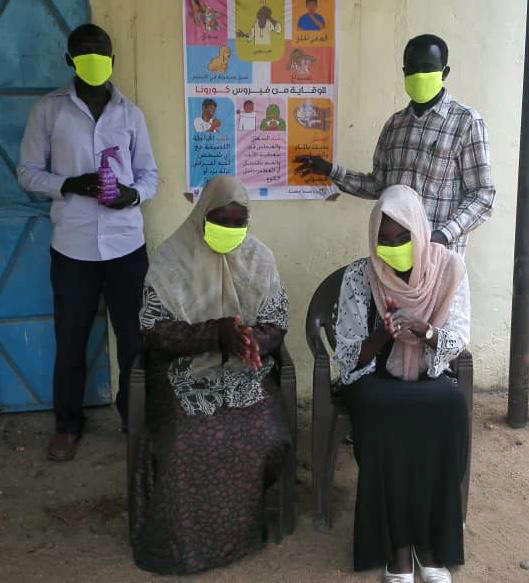
JVC Kaduqli staff pasting posters about COVID-19 awareness on walls and wearing handmade masks. Ahmad is the man on the top right.
